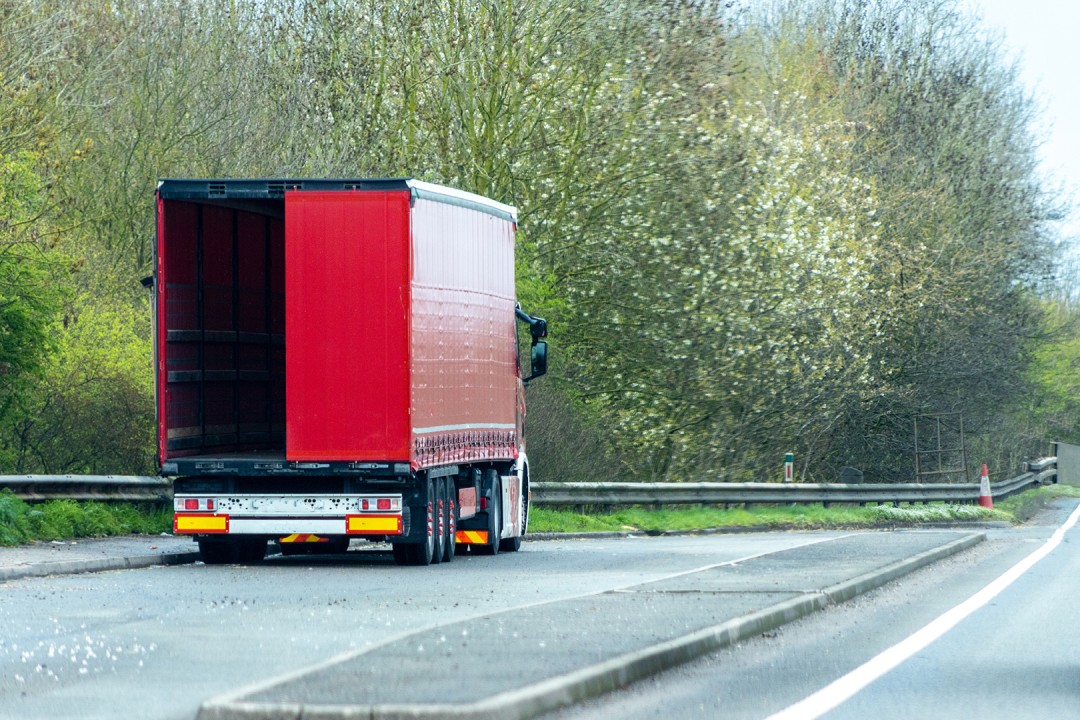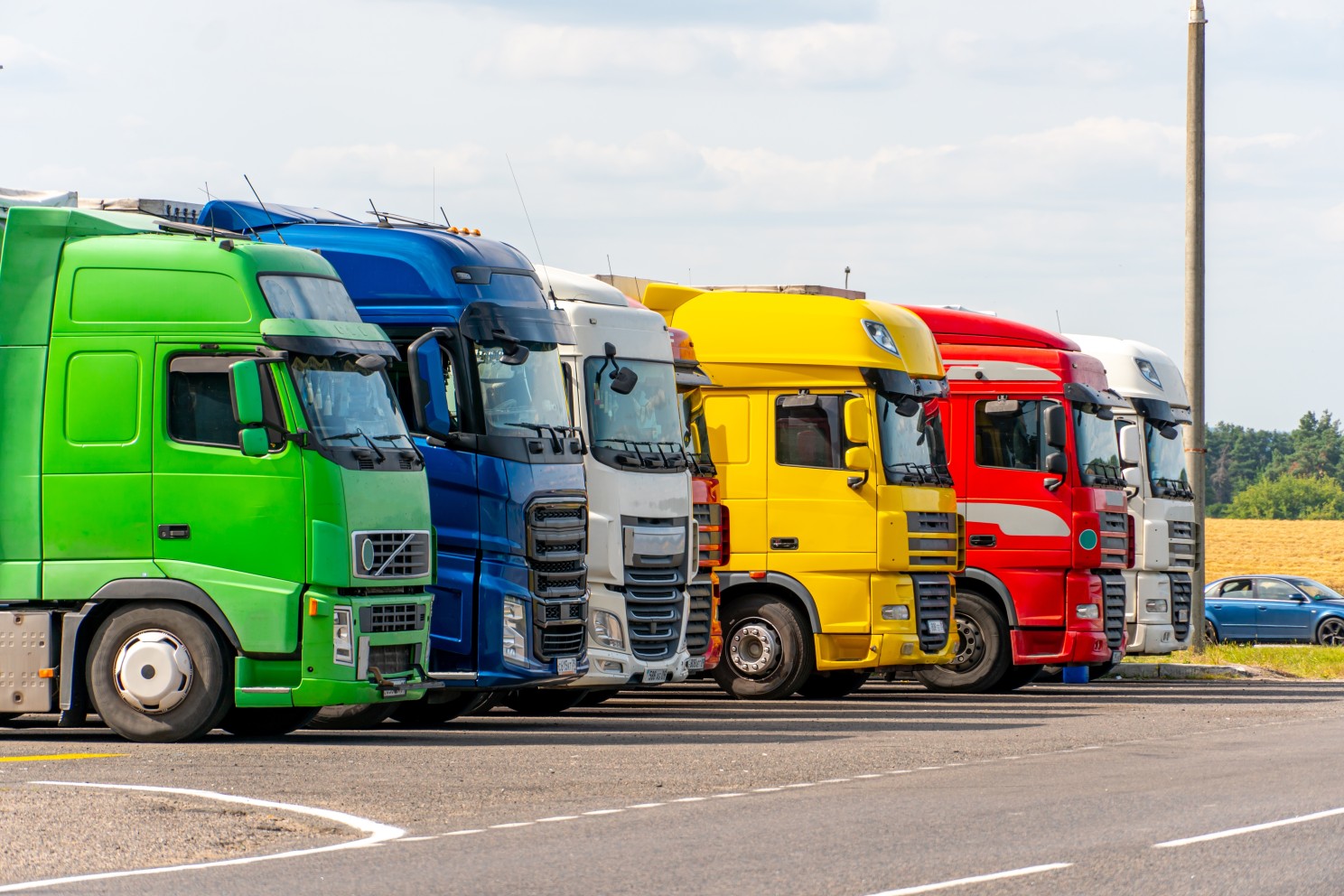
Susie Jones
Gli automobilisti preferiscono le piazzole di sosta alle stazioni di servizio
Creato: 19/08/2024
•
Aggiornato: 19/08/2024
Nel 2022, il Regno Unito ha registrato oltre 5.000 segnalazioni di reati nel settore del trasporto merci, per una perdita di circa 66 milioni di sterline. L'aumento della criminalità nel settore del trasporto merci rappresenta una minaccia critica per le catene di approvvigionamento, le aziende e i consumatori, causando notevoli preoccupazioni per gli operatori del settore.
Secondo un rapporto pubblicato dalla polizia del Cambridgeshire, il 46% di tutti i furti di merci avviene su strade e piazzole di sosta, mentre il 27% avviene nelle stazioni di servizio. Nonostante ciò, l'ascolto sociale mostra che molti automobilisti continuano a parcheggiare nelle piazzole di sosta per vari motivi.
I problemi del parcheggio in piazzola
Per gli automobilisti, il parcheggio notturno in una piazzola di sosta è spesso l'opzione più semplice ed economica. Tuttavia, presenta diversi aspetti negativi che possono influire negativamente sulla salute mentale e sulla sicurezza dei conducenti.
Strutture - Gli autisti hanno bisogno di più strutture, come bagni, docce e cibo. La mancanza di strutture pulite può aumentare il disagio e influire negativamente sul sonno, sulla concentrazione e sulla salute mentale.
Sicurezza dei conducenti - Le piazzole di sosta rappresentano un ulteriore rischio per la sicurezza dei conducenti. Uno studio dell'associazione [AA] (https://www.transport-network.co.uk/Highways-AA-warns-of-danger-lurking-in-lay-bys/7695#:~:text=The%20Too%20close%20for%20comfort,the%20vehicles%20that%20are%20hit.) ha rilevato che due terzi degli incidenti mortali che coinvolgono veicoli fermi su una doppia carreggiata si sono verificati nelle piazzole di sosta e oltre la metà dei veicoli colpiti erano mezzi pesanti.
Furti di merci - Il settore ha registrato un aumento del 380% dei furti di merci nel periodo giugno-luglio del 2023, evidenziando la necessità di parcheggi sicuri e protetti. Con i ladri opportunisti che prendono di mira le piazzole di sosta, gli autisti rischiano di perdere il loro carico e le flotte di perdere milioni di sterline.
Perché gli automobilisti parcheggiano nelle piazzole di sosta
Nonostante i rischi, l'ascolto sociale condotto tramite Facebook ha suggerito che il 70% degli automobilisti è meno propenso a scegliere un parcheggio per camion rispetto a una piazzola di sosta per diversi motivi:
Sicurezza
Il feedback dei social media ha suggerito che il 43% dei camionisti ha scelto di non parcheggiare in un'area di servizio o in una stazione di servizio a causa della mancanza di misure di sicurezza.
"Parcheggio solo nelle piazzole di sosta o nelle zone industriali. Quando ho parcheggiato nei servizi o nelle aree di sosta, mi hanno tagliato le tende", afferma il camionista Luke.
La sicurezza delle aree di sosta per autocarri in tutto il Regno Unito è stato un argomento di discussione molto sentito nel settore dei trasporti, con la richiesta da parte degli autisti di un maggiore sostegno da parte del governo per fornire ulteriori installazioni di sicurezza. Da precedenti feedback, gli autotrasportatori desiderano che il [prelievo sui mezzi pesanti] (https://motortransport.co.uk/industry-news/drivers-want-hgv-levy-funds-spent-on-truck-stops/17658.article) venga investito in parcheggi più sicuri, igienici e convenienti.
Dai social media, il 59% dei camionisti ha dichiarato che il Regno Unito non dispone di un numero sufficiente di aree di sosta sicure e protette rispetto all'Europa. Un'opinione supportata dal feedback di [SNAP's Truck Park Tour] (https://snapacc.com/truckpark-tour-2023/), dove il 31% degli autisti europei ha dichiarato di aver tratto i maggiori benefici dall'accesso alle esclusive e sicure aree di sosta SNAP. L'organizzazione per la sicurezza TAPA è ampiamente riconosciuta in Europa, con molte sedi in possesso delle certificazioni di livello 1, 2 o 3.
Nel Regno Unito, invece, ci sono solo due sedi con certificazione TAPA, accreditate da auditor autorizzati di livello 3 formati da SNAP PSR. Formula Services e The Red Lion hanno entrambi una certificazione di livello 3, con un reato segnalato presso The Red Lion e nessuno presso Formula Services, nonostante la sua ubicazione in una zona ad alta criminalità.
Markus Prinz, Senior Manager di Standards, Training e Certification presso TAPA, spiega: "Sosteniamo pienamente tutte le attività volte a garantire infrastrutture di parcheggio efficienti e sicure per i camion e a migliorare la sicurezza dei conducenti, dei veicoli e del carico. Fornendo un ecosistema aperto per l'ottimizzazione tecnica ed economica del parcheggio sicuro per autocarri, crediamo che la transizione verso un parcheggio sicuro per autocarri possa essere incentivata".
Riluttanza dell'azienda
Il 30% dei conducenti ha dichiarato che le società di flotta non sono disposte a pagare le aree di sosta o le stazioni di servizio. Un autista ha spiegato:
"Meno aziende, purtroppo, pagano il parcheggio notturno, le strutture restano aperte a fatica, tagliano il personale per far fronte alle spese e arrivano meno parcheggi".
Fermate dei camion alla massima capacità
"Si può capire quali sono le fermate con la sicurezza, perché alle 18.00 sono già piene".
Il 70% degli autisti ha espresso la propria frustrazione per il fatto che le aree di sosta sicure sono al massimo della capienza e non lasciano altra scelta che parcheggiare in una piazzola di sosta. Il feedback del Truck Park Tour è stato simile: molti hanno espresso la loro preoccupazione per il fatto che le aree di sosta nel Regno Unito sono piene prima dell'arrivo.
I dati dell'indagine TfL sul parcheggio dei camion nel 2022 affermano che, nonostante un aumento del 12% della capacità in loco nel periodo 2017-2022, non è sufficiente a sostenere l'aumento del 21% dei veicoli nello stesso periodo.

Riduzione della sosta notturna nelle piazzole di sosta
Finanziamenti statali
Il 18% degli automobilisti vorrebbe che il Governo finanziasse maggiormente le installazioni di sicurezza. Nel settembre 2023, il Dipartimento dei Trasporti ha assegnato 8 milioni di sterline a 39 strutture stradali in tutta l'Inghilterra per migliorare le strutture e la sicurezza. Il team di SNAP che si occupa di accesso e sicurezza sta iniziando a supportare le aziende che si sono assicurate il finanziamento, implementando i loro miglioramenti. Ulteriori finanziamenti fino a 100 milioni di sterline sono disponibili fino al 2025 nell'ambito del programma governativo di match-funding.
Impianti di sicurezza
Per offrire un'area sicura agli autisti di camion, le aree di sosta possono investire in solide installazioni di sicurezza: prodotti come TVCC, ANPR, citofoni, barriere e chioschi rafforzano la sicurezza del sito e scoraggiano le attività criminali. SNAP Access & Security combina prodotti di sicurezza su misura ed esperienza di mercato per proteggere le persone, i veicoli e il contenuto delle aree di sosta per camion.
I camionisti possono dormire sul ciglio della strada nel Regno Unito?
Dal 1° novembre 2017, la DVSA ha implementato nuove regole e regolamenti riguardanti i conducenti che riposano in luoghi come aree residenziali e piazzole di sosta. Gli autisti potrebbero essere multati fino a 300 sterline se trascorrono la loro pausa in una piazzola di sosta o sul ciglio della strada.
Come fanno gli autisti di camion a rimanere svegli durante la guida?
I conducenti di autocarri devono rispettare le regole del tachigrafo per la loro sicurezza e per quella di tutti gli altri utenti della strada. Lo scopo del tachigrafo è quello di prevenire la stanchezza dei conducenti e di garantire che i conducenti e i datori di lavoro rispettino le regole.
Ciononostante, prevenire la noia e la stanchezza sulla strada è una sfida per molti conducenti e può influire sul loro benessere. La maggior parte degli autisti preferisce ascoltare musica e podcast mentre è in viaggio e trae beneficio dall'interazione sociale con altri autisti nelle aree di sosta e nelle stazioni di servizio.
Gli autisti di camion possono avere passeggeri nel Regno Unito?
Un camionista medio trascorre circa 12 ore al giorno al volante. Per combattere la solitudine e la noia, gli autisti possono trasportare passeggeri se seguono le norme specifiche delineate dall'FMSCA. Gli autisti devono ottenere un'autorizzazione scritta dalla propria azienda presentando una richiesta di trasporto passeggeri, che deve indicare la durata del viaggio e le date.
I requisiti comuni sono i seguenti: - I passeggeri non devono essere in stato di gravidanza
Non devono soffrire di condizioni di salute gravi o croniche.
Devono avere almeno dieci anni
È richiesta l'assicurazione sanitaria.


